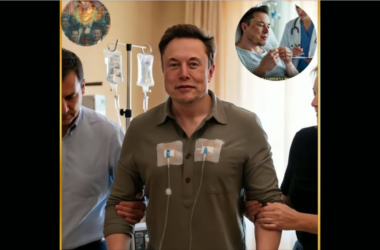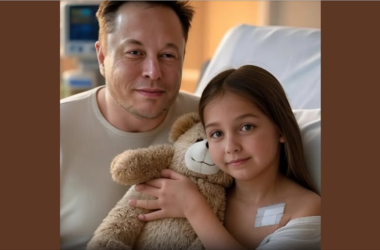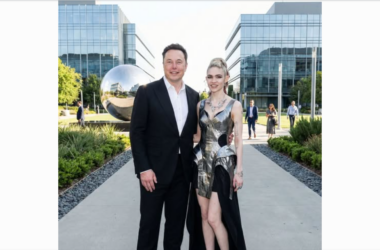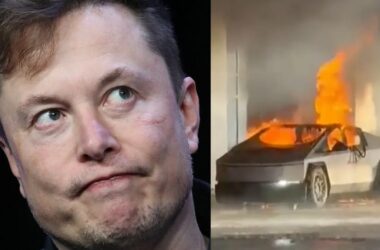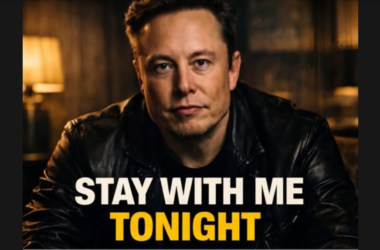
On July 20, 2025, Elon Musk, the billionaire CEO of Tesla, SpaceX, and X Corp, announced a groundbreaking initiative that captured global attention: he would personally fund a five-day trip to Disneyland in Anaheim, California, for 1,000 poor and homeless children. The announcement, made via a post on X, detailed a $5 million commitment through the Musk Foundation to provide an all-expenses-paid experience, including park access, accommodations, meals, and transportation. Described as a “once-in-a-lifetime” opportunity, the move has sparked widespread praise, debate, and skepticism, given Musk’s polarizing public persona and recent controversies surrounding his business ventures and political stances. This bold gesture, aimed at bringing joy to underprivileged youth, has reignited discussions about Musk’s philanthropy and his complex relationship with social issues like homelessness.
A Grand Gesture for a Vulnerable Group
Musk’s announcement came during a live Q&A session on X, where he responded to a user’s question about addressing child poverty with a concrete plan. “I’m putting my money where my heart is,” Musk wrote. “The Musk Foundation will sponsor 1,000 kids—poor, homeless, or both—for a 5-day trip to Disneyland. Full experience: tickets, hotels, food, transport, the works. Let’s give them a chance to just be kids.” The initiative, set to take place in September 2025, will partner with local California nonprofits, including Covenant House and the Los Angeles Mission, to identify eligible children aged 6 to 17 from low-income or homeless backgrounds. Each child will be accompanied by trained chaperones, and the trip will include access to Disneyland and Disney California Adventure Park, stays at nearby hotels, and special events like character meet-and-greets and a private fireworks show.
The Musk Foundation, which has donated over $18 million to Texas schools and community projects in recent years, is overseeing the logistics. The initiative also includes mental health support for the children, with counselors available to ensure a safe and uplifting experience. Musk emphasized that the trip aims to “create memories that last a lifetime,” drawing on his own childhood love for Disney’s imaginative storytelling, particularly films like The Lion King and Toy Story, which he has said inspired his son X Æ A-Xii. The announcement, reported by Forbes and CNBC, has been hailed as a rare moment of direct philanthropy from Musk, who has pledged to give away half his fortune but has faced criticism for limited charitable giving relative to his $424.7 billion net worth.

A Polarizing Figure’s Philanthropic Pivot
Musk’s decision comes amid a turbulent period for the billionaire, whose influence spans technology, space exploration, and U.S. government policy as co-leader of the Department of Government Efficiency (DOGE). His recent controversies, including a fatal Tesla Cybertruck fire in August 2024 and backlash over his dismissal of homelessness as a “lie” in December 2024, have painted him as out of touch with social issues. Critics, including homeless rights advocates, have pointed to Musk’s support for cuts to federal programs like food stamps and healthcare, which benefit low-income Americans, as evidence of a disconnect. Yet, this Disneyland initiative appears to counter that narrative, positioning Musk as a benefactor to society’s most vulnerable.
The timing of the announcement has raised eyebrows. Some speculate it’s a strategic move to soften Musk’s image following negative headlines, including his ongoing feud with Disney CEO Bob Iger over advertising disputes and diversity policies. In 2023, Musk publicly criticized Iger, calling for his firing after Disney pulled advertising from X, and has since targeted Disney’s DEI initiatives as “racist” and “sexist.” The Disneyland sponsorship, however, suggests a temporary détente, with Musk reportedly coordinating with Disney to ensure the children’s experience is seamless. A source close to the Musk Foundation told The New York Times that Disney offered discounted park access and waived certain fees, though Disney has not officially commented.
The Logistics and Impact
The $5 million budget covers comprehensive expenses for the 1,000 children. According to The Los Angeles Times, the package includes five-day Park Hopper tickets (approximately $500 per child), accommodations at Disney’s Grand Californian Hotel, meals, and round-trip transportation, with buses for local children and flights for those from other regions. The Musk Foundation has allocated $500,000 for mental health support and chaperone training, partnering with organizations like Big Brothers Big Sisters to ensure supervision. Special touches include personalized Mickey Mouse ears and a private screening of a Pixar film, a nod to Steve Jobs’ legacy with the animation studio.
The initiative has drawn praise from community leaders. Ann Oliva, CEO of the National Alliance to End Homelessness, called it “a rare bright spot for kids who face unimaginable challenges,” though she cautioned that systemic solutions are still needed. Covenant House California’s executive director, Bill Bedrossian, told CNBC, “This isn’t just a trip—it’s a chance for these kids to feel seen and valued.” The selection process prioritizes children in foster care, homeless shelters, or low-income households, with an emphasis on those who have never visited a theme park.
Social media, particularly X, has been abuzz with reactions. Users like @HopeForKids25 praised Musk, writing, “Elon giving 1,000 homeless kids a Disneyland trip is the kind of move that changes lives.” Others, like @SkepticObserver, questioned the motives, noting, “Great for the kids, but is this just PR to distract from Tesla’s safety issues?” The debate reflects Musk’s polarizing persona, described by biographer Ashlee Vance as “part philosopher, part troll.”
Musk’s Complex Relationship with Homelessness
Musk’s philanthropy has often been scrutinized. While he has donated to causes like the Future of Life Institute and Sierra Club, his foundation’s giving—$7 million annually by some estimates—pales compared to his wealth. His December 2024 claim that homelessness is a “lie” and “propaganda” drew sharp criticism from advocates, who pointed to over 600,000 Americans experiencing homelessness annually. Musk’s support for policies reducing federal safety nets, alongside Vivek Ramaswamy, further fueled accusations of insensitivity. This initiative, however, marks a shift, aligning with his earlier pledges to address humanitarian crises, such as a 2021 offer to fund $6 billion for world hunger if the UN provided a detailed plan.
The Disneyland project also contrasts with Musk’s personal history. Raised in Pretoria, South Africa, he faced childhood hardships, including bullying and estrangement from his father, which he has said shaped his resilience. His decision to sell his $70 million Bel-Air mansions in 2020, citing a desire to focus on SpaceX and Mars colonization, was seen by some as a PR move but also reflected a disdain for material excess. Sponsoring this trip may reflect a personal connection to giving children a chance to escape hardship, even temporarily.
Challenges and Criticisms
Despite the initiative’s noble intent, challenges remain. Organizing a trip for 1,000 children requires meticulous planning, with concerns about safety, accessibility, and emotional well-being. The Guardian noted that some advocates worry the trip, while generous, is a “Band-Aid” for deeper issues like housing insecurity. Others question Musk’s sincerity, given his history of controversial statements and limited engagement with poverty-focused charities. Kathleen Enright of the Council on Foundations suggested that Musk’s philanthropy often serves his business interests, citing his donations to Brownsville, Texas, near SpaceX facilities.
The partnership with Disney also raises questions, given Musk’s public clashes with the company. His 2023 call for a Disney boycott and criticism of its DEI policies contrast sharply with this collaboration. Some X users, like @FreeSpeechFan, remarked, “Elon working with Disney after trashing Iger is peak irony. But if it helps kids, I’m here for it.” The initiative’s success may hinge on whether Musk and Disney can navigate their fraught history to prioritize the children’s experience.
A Moment of Joy Amid Controversy
Musk’s decision to fund this Disneyland trip has sparked a complex conversation about philanthropy, privilege, and accountability. For the 1,000 children, the trip promises a rare escape into a world of magic and wonder, a chance to create memories unburdened by their daily struggles. For Musk, it’s an opportunity to reshape his narrative as a philanthropist, even as critics demand more systemic change. As the September 2025 trip approaches, the world will watch to see if this bold move delivers on its promise—or becomes another chapter in Musk’s polarizing saga.
